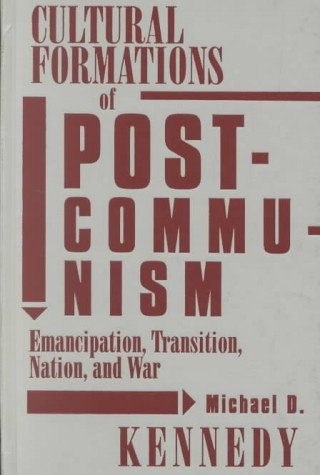
Kód: 04729300
Cultural Formations Of Postcommunism
Autor Michael D. Kennedy
"Transition" is the name typically given to the time of radical change following the fall of communism, connoting a shift from planned to market economy, from dictatorship to democracy. Transition is also, in Michael Kennedy's ana ... celý popis
- Jazyk:
 Angličtina
Angličtina - Vazba: Pevná
- Počet stran: 384
Nakladatelství: University of Minnesota Press, 2002
- Více informací o knize

2973 Kč
Dostupnost:
50 % šance Máme informaci, že by titul mohl být dostupný. Na základě vaší objednávky se ho pokusíme do 6 týdnů zajistit.
Máme informaci, že by titul mohl být dostupný. Na základě vaší objednávky se ho pokusíme do 6 týdnů zajistit.Prohledáme celý svět
Mohlo by se vám také líbit
Darujte tuto knihu ještě dnes
- Objednejte knihu a zvolte Zaslat jako dárek.
- Obratem obdržíte darovací poukaz na knihu, který můžete ihned předat obdarovanému.
- Knihu zašleme na adresu obdarovaného, o nic se nestaráte.
Informovat o naskladnění knihy
Zadejte do formuláře e-mailovou adresu a jakmile knihu naskladníme, zašleme vám o tom zprávu. Pohlídáme vše za vás.
Více informací o knize Cultural Formations Of Postcommunism
Nákupem získáte 297 bodů
 Anotace knihy
Anotace knihy
"Transition" is the name typically given to the time of radical change following the fall of communism, connoting a shift from planned to market economy, from dictatorship to democracy. Transition is also, in Michael Kennedy's analysis, a culture in its own right -- with its own contentions, repressions, and unrealized potentials. By elaborating transition as a culture of power and viewing it in its complex relation to emancipation, nationalism, and war, Kennedy's book clarifies the transformations of postcommunism as well as, more generally, the ways in which culture articulates social change. This ambitious work is, in effect, a nuanced critical-cultural sociology of change.Kennedy examines transition culture's historical foundation by looking at the relationship among perestroika, Poland, and Hungary, and considers its structure and practice in the following decade across fields and nations. His wide-ranging analysis -- of the artifacts of transition culture's proponents, of interviews with providers and recipients of technical assistance in business across Eastern Europe, and of focus groups assessing the successes and failures of social change in Estonia and Ukraine -- suggests a transition culture deeply implicated in nationalism. But this association, Kennedy contends, is not necessarily antithetical to transition's emancipation. By reconsidering transition culture's relationship to the Wars of Yugoslav Succession and communism's negotiated collapse in Poland and Hungary, he shows how transition might be reconceived in terms of solidarity, freedom, and peace.Distinguished by its focus on culture, not only within particular nations but in the transnational communityorganized around transition, this book will help reframe the debate about postcommunist social change.
 Parametry knihy
Parametry knihy
Zařazení knihy Knihy v angličtině Society & social sciences Politics & government Political ideologies
2973 Kč
- Plný název: Cultural Formations Of Postcommunism
- Podnázev: Emancipation, Transition, Nation, and War
- Autor: Michael D. Kennedy
- Jazyk:
 Angličtina
Angličtina - Vazba: Pevná
- Počet stran: 384
- EAN: 9780816638574
- ISBN: 0816638578
- ID: 04729300
- Nakladatelství: University of Minnesota Press
- Hmotnost: 617 g
- Rozměry: 229 × 149 × 26 mm
- Datum vydání: 17. July 2002
Oblíbené z jiného soudku
-

The Communist Manifesto
90 Kč -

The Unabomber Manifesto
288 Kč -

Capital
131 Kč -

Mein Kampf
766 Kč -

German Ideology
459 Kč -

How to be a conservative
429 Kč -

The Communist Manifesto
53 Kč -

Mein Kampf
700 Kč -

Notes on Nationalism
90 Kč -
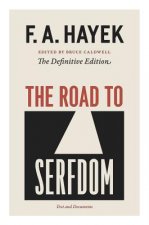
Road to Serfdom
412 Kč -

Rules for Radicals
312 Kč -

Anatomy of Fascism
327 Kč -

The Virtue of Nationalism
611 Kč -
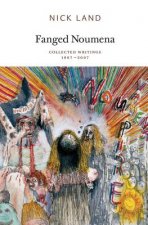
Fanged Noumena - Collected Writings 1987-2007
701 Kč -
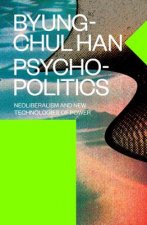
Psychopolitics
306 Kč -

State and Revolution
173 Kč -

Mein Kampf
863 Kč -

Communist Manifesto and Das Kapital
223 Kč -

Communist Manifesto
193 Kč -
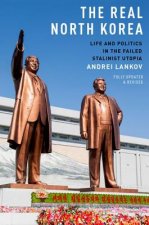
Real North Korea
357 Kč -
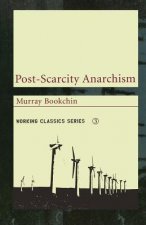
Post-scarcity Anarchism
380 Kč -
![What Is to Be Done? [Burning Questions of Our Movement] What Is to Be Done? [Burning Questions of Our Movement]](https://media.libris.to/jacket/08800888t.jpg)
What Is to Be Done? [Burning Questions of Our Movement]
193 Kč -

New Way Of The World
690 Kč -

Capitalism, Socialism and Democracy
380 Kč -

Coming Insurrection
304 Kč -

Socialism
345 Kč -

Mass Psychology of Fascism
418 Kč -

New Faces of Fascism
454 Kč -

Essential Writings of Karl Marx
485 Kč -

Marx'S Das Capital for Beginners
423 Kč -

Fascism for the Million
750 Kč -

Irreversible Damage
548 Kč -

American Fuehrer
1112 Kč -

Up from Liberalism
431 Kč -

Nations and Nationalism
893 Kč -

Origins and Doctrine of Fascism
1543 Kč -

Law
247 Kč -

Writings of Rosa Luxemburg
516 Kč -

Dogs of the Sinai
749 Kč -

Marx's Fate
1220 Kč -

Blackshirts and Reds
345 Kč -

Imagined Communities
366 Kč -

The Rape of the Mind
372 Kč -

Brainwashed
357 Kč -

Why Liberalism Failed
421 Kč -

Rights of Man, Common Sense, and Other Political Writings
196 Kč -

Communist Manifesto
143 Kč -

Capital
418 Kč -

Brief History of Neoliberalism
650 Kč
Osobní odběr Praha, Brno a 12903 dalších
Copyright ©2008-24 nejlevnejsi-knihy.cz Všechna práva vyhrazenaSoukromíCookies


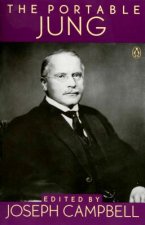


 Vrácení do měsíce
Vrácení do měsíce 571 999 099 (8-15.30h)
571 999 099 (8-15.30h)